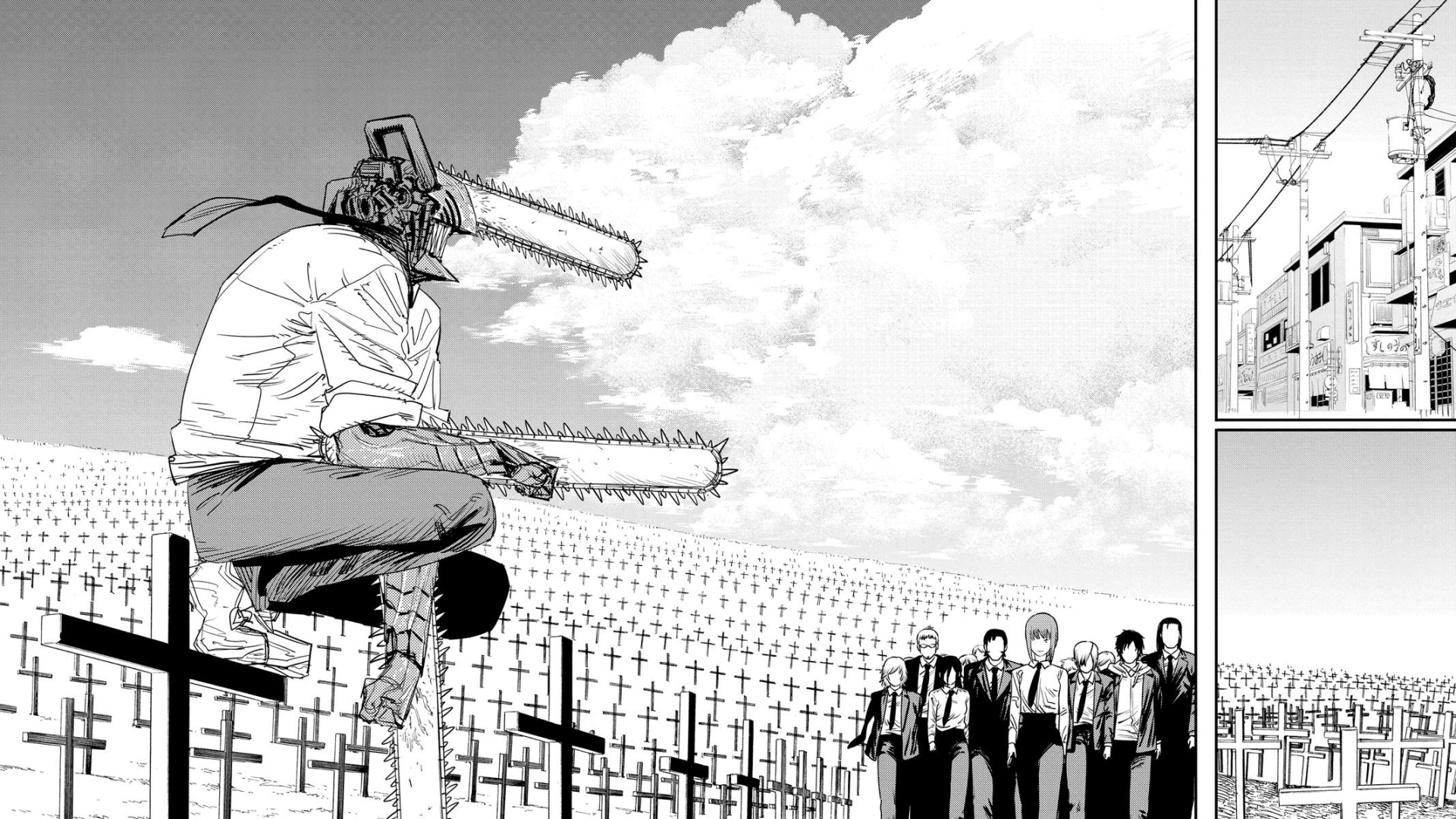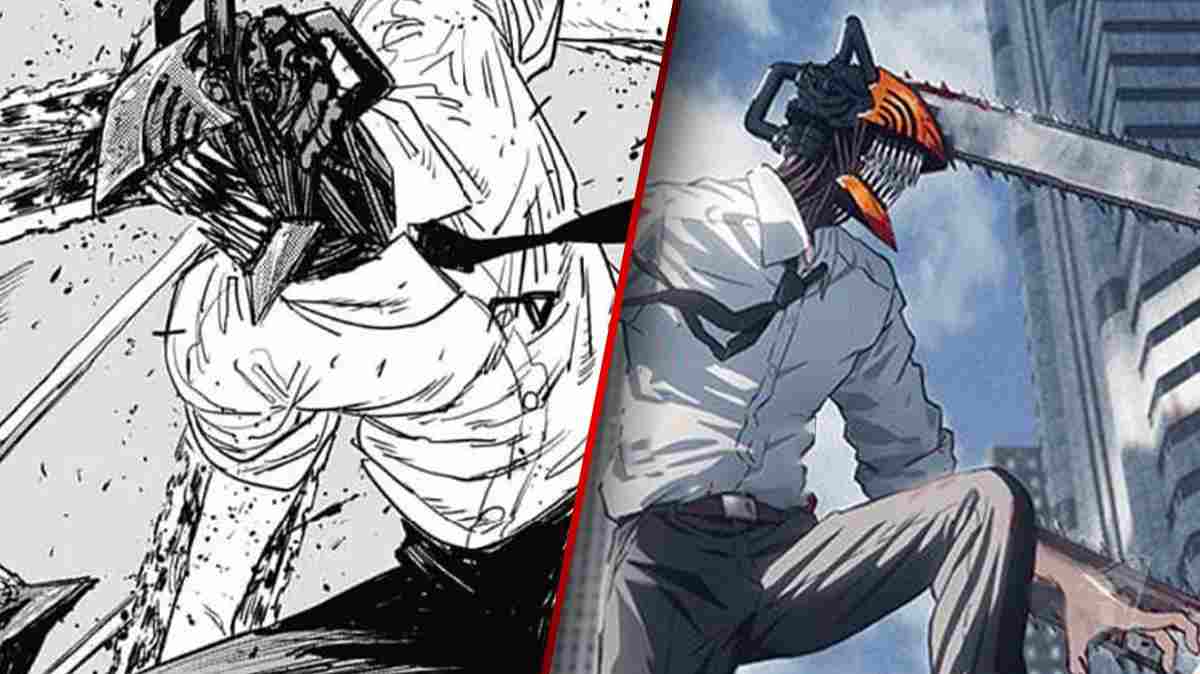Makima manga, yo! This ain’t your grandma’s shoujo manga. We’re talkin’ about a seriously twisted, complex character who’s totally captivating and terrifying all at once. Prepare for a wild ride through her motivations, powers, and the totally messed-up relationship she has with Denji. Get ready to unpack her manipulative tactics, analyze her killer style, and dive deep into the fan theories that’ll blow your mind.
From her chilling control over people to her surprisingly vulnerable moments (yeah, she has ’em!), Makima is a character that keeps you guessing. We’ll break down her iconic visual design, explore her impact on the Chainsaw Man narrative, and dissect the crazy fan interpretations that flood the internet. It’s gonna be epic.
Makima: Chainsaw Man’s Queen of Control: Makima Manga
Makima, the enigmatic Control Devil, reigns supreme as one of the most captivating and terrifying antagonists in the Chainsaw Man manga. Her chilling charisma, manipulative prowess, and seemingly limitless power make her a truly unforgettable character. This deep dive explores Makima’s complex character, her devastating abilities, her twisted relationship with Denji, her impact on the narrative, and the diverse fan interpretations that surround her.
Makima’s Character Analysis: A Portrait of Control
Makima presents a captivating duality. Publicly, she’s the seemingly benevolent Public Safety Devil Hunter, radiating calm and authority. Privately, however, she’s a ruthless manipulator driven by a deep-seated desire for a “perfect” world, free from the chaos and pain she experienced in her past. Her manipulative tactics range from subtle psychological manipulation to outright threats, always tailored to her target’s vulnerabilities.
She possesses remarkable emotional intelligence, expertly exploiting the insecurities and desires of those around her. Her strength lies in her ability to appear trustworthy and caring, lulling her victims into a false sense of security before striking. A significant weakness, however, is her inability to truly connect with others on an emotional level, stemming from her traumatic childhood.
This emotional detachment ultimately leads to her downfall. Her backstory reveals a life of unimaginable hardship and abuse, fueling her desire to control and reshape reality to her liking. Her key relationships, particularly with Denji, serve as both tools and sources of frustration in her quest for control.
Makima’s Power and Abilities: The Control Devil’s Reign
Makima’s power stems from her Control Devil abilities, allowing her to exert influence over the minds and actions of others. This isn’t simple mind control; she subtly manipulates thoughts and behaviors, often leaving her victims unaware of her influence. Her control extends to manipulating even the most powerful Devil Hunters, showcasing her mastery over her abilities. However, her powers aren’t without limitations.
Her control is most effective on individuals emotionally vulnerable or lacking strong willpower. Powerful Devils, like the Gun Devil, or those with exceptional mental fortitude, can resist her influence. Key scenes showcase her strategic deployment of her abilities. For example, her manipulation of Denji is a masterpiece of psychological warfare, slowly breaking down his resolve and molding him to her will.
Compared to other powerful characters, Makima’s control stands out for its subtlety and pervasive nature. The ethical implications of her powers are profound, highlighting the dangers of unchecked power and manipulation. Her actions raise crucial questions about free will and the nature of control.
Makima’s Relationship with Denji: A Twisted Bond

The relationship between Makima and Denji is a complex and disturbing dance of manipulation and reluctant affection. Makima sees Denji as a powerful tool and a potential solution to her desire for a perfect world, while Denji, initially drawn to her kindness and attention, gradually becomes a victim of her control. Key moments define their dynamic, from their initial meeting to the tragic climax of their conflict.
Makima’s manipulation of Denji is multi-layered, ranging from subtle suggestions to blatant coercion. She exploits his loneliness, his desire for connection, and his naivete to bend him to her will. The emotional impact of Makima’s actions on Denji is profound, leaving him scarred and questioning his own sanity. A timeline of their interactions reveals a gradual descent into manipulation and betrayal, culminating in a heart-wrenching confrontation.
Makima’s Impact on the Narrative: The Architect of Chaos, Makima manga
Makima serves as the main antagonist, driving much of the plot’s conflict and shaping the development of other characters. Her presence forces other characters to confront their own moral dilemmas and fight for survival against her overwhelming power. The themes of control, manipulation, and the consequences of unchecked power are central to the narrative, directly influenced by Makima’s actions and motivations.
Her defeat marks a significant turning point in the story, forcing the remaining characters to confront the consequences of her reign and rebuild a world free from her influence. The overall narrative arc is significantly impacted by Makima’s presence and her eventual demise.
Visual Representation of Makima: An Image of Control
Makima’s visual design is meticulously crafted to reflect her personality and power. Her elegant attire, composed of professional suits and dresses, projects an image of authority and control. Her calm demeanor and composed expression further reinforce this image. A specific scene illustrating this could be her initial meeting with Denji, where her seemingly gentle demeanor masks her underlying manipulative intentions.
Do not overlook explore the latest data about demon city shinjuku manga.
Recurring visual motifs associated with Makima include the color red, often present in her clothing or surroundings, symbolizing power and danger. Her calm, almost serene expression contrasts sharply with the violence and chaos she inflicts, creating a sense of unease and unpredictability.
| Chapter | Attire | Expression | Overall Impression |
|---|---|---|---|
| Chapter 1 | Formal business suit, light colors | Calm, composed | Authoritative, approachable |
| Chapter 97 | Elegant dress, dark colors | Slightly menacing smile | Powerful, dangerous |
| Chapter 98 | Casual clothes, slightly disheveled | Determined, fierce | Vulnerable, yet powerful |
| Chapter 100 | Torn and bloodied | Defeated, resigned | Broken, yet defiant |
Fan Interpretations and Theories: Unraveling the Mystery
Fan theories surrounding Makima’s backstory and motivations are numerous and varied. Some fans focus on her traumatic childhood and how it shaped her desire for control, while others speculate about the extent of her control Devil powers and her ultimate goals. Fan art and fanfiction have expanded on Makima’s character, exploring different aspects of her personality and her relationships with other characters.
Recurring themes in fan discussions include her manipulative nature, her complex relationship with Denji, and the ethical implications of her actions. Common fan interpretations of Makima’s final moments often focus on her regret, her acceptance of her fate, or her continued influence even in death.
- Makima’s actions were driven by a desire to prevent future suffering.
- Makima genuinely cared for Denji, despite her manipulative actions.
- Makima’s death was a necessary sacrifice to defeat the Control Devil.
- Makima’s influence continues to affect the world even after her death.
So, yeah, Makima. She’s not just a villain; she’s a phenomenon. Her impact on Chainsaw Man is undeniable, leaving a legacy of fear, fascination, and a whole lotta fan theories. Whether you love her, hate her, or are somewhere in between, Makima’s a character that’ll stick with you long after you finish the manga. It’s a testament to her complexity and the brilliance of Tatsuki Fujimoto’s writing.
Now go forth and discuss this crazy character with your friends!

